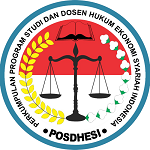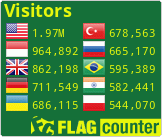Anomali Kewenangan LPKSM dalam Mengajukan Gugatan Perlindungan Konsumen di Indonesia
DOI:
https://doi.org/10.32332/muamalah.v2i1.6964Keywords:
Kewenangan, LPKSM, UUPKAbstract
Consumer protection is a crucial element in the concept of the rule of law in countries like Indonesia. Regulations regarding consumer protection are outlined in Law No. 8 of 1999 on Consumer Protection, along with Government Regulation No. 89 of 2019, which amends Government Regulation No. 59 of 2001 on Consumer Protection Organizations (Lembaga Perlindungan Konsumen Swadaya Masyarakat - LPKSM). Indonesia has established LPKSM as a non-governmental organization tasked with providing consumer protection services to the public. This institution is granted various powers through the Consumer Protection Act (UUPK). However, the issue arises regarding the authority of LPKSM to file lawsuits in court related to consumer protection. This research utilizes a normative legal research method. The findings reveal that the role of LPKSM in advocacy is not clearly defined, particularly whether it involves providing legal services similar to those of an advocate in court. However, based on the provisions in the Government Regulation regarding LPKSM, its role is limited to assisting consumers in filing complaints, as legal services are only provided to those who are legally qualified as advocates, as stated in Article 1, Paragraph 2 of Law No. 18 of 2003 on Advocates.
Downloads
References
Downloads
Published
Issue
Section
License
Copyright (c) 2023 Muhammad Zulhidayat

This work is licensed under a Creative Commons Attribution-ShareAlike 4.0 International License.
All articles in the Mu'amalah: Jurnal Hukum Ekonomi Syariah can be disseminated on condition that they still include the identity of the article and the source (Mu'amalah). The publisher is not responsible for the contents of the article. The content of the article is the sole responsibility of the author.
Authors who publish this subject agree to the following terms:
First, the Authors retain copyright and grant the journal rights from the first publication with the work simultaneously licensed under a Creative Commons Attribution-ShareAlike 4.0 International License that allows others to share the work with an acknowledgement of the work's authorship and initial publication in this journal.
Secondly, the authors can enter into a separate or an acknowledgement of its initial (e.g., post-institutional repository or publish it in a book) publication in this journal.
![]()
Third, the authors are permitted and encouraged to post their work online (e.g., in institutional repositories or on their website) before publishing work is cited.








